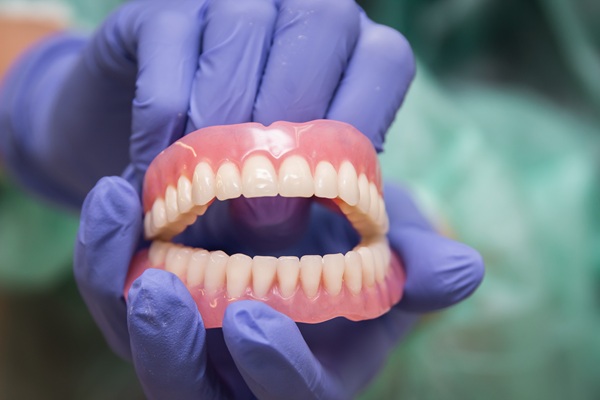A Cracked Tooth and Nerve Damage

The severity of a cracked tooth often determines how a dentist goes about treating it. Minor cracks to a tooth only affect its outer layers, so there is rarely any pain involved. The damage is typically aesthetic, but treatment is still needed because the outer layer of a tooth being damaged leaves it more vulnerable to erosion.
More severe damage to a tooth can leave its inner layers compromised as well. At times, the damage opens up the pulp chamber, which contains the tooth's blood vessels and nerves. Such damage might be accompanied by pain and bleeding. It also leaves the tooth susceptible to infection. This type of severe damage to a tooth counts as a dental emergency and requires immediate treatment.
Teeth can become cracked due to:
- Tooth decay
- Trauma to a tooth
- Biting on hard items
How dentists can treat a cracked tooth with nerve damage
When a tooth is damaged to the point that its nerve is damaged, a dentist can save it by performing a root canal. This procedure involves injecting the patient with a local anesthetic around the damaged tooth. A hole is drilled into it, and the dentist cleans out the blood vessels and nerve. They apply medication to the tooth before sealing it up with filling. Teeth that have been treated with root canals are usually covered with crowns to protect them from further damage and to restore their appearance.
In some cases, the dentist might be forced to extract the tooth if it is too damaged to be saved. If the tooth is extracted, the dentist will replace it with a restoration like a dental implant.
Managing your broken tooth
Broken teeth often come with sharp edges that can damage soft tissues in the mouth. It might also be accompanied by pain and increased sensitivity to hot and cold foods. If the injury does not count as a dental emergency, the patient might need to manage the tooth for one or two weeks as they wait for their appointment.
Here is how dentists recommend dealing with a broken tooth:
- Use sugarless gum or dental adhesives to smooth out any rough edges
- Rinse with salt water after meals to remove debris stuck in the tooth
- Apply ice to the cheek around the damaged tooth to reduce any swelling; if the injury was caused by trauma to the face, it can take days for all the swelling to go down
- Place gauze around the damaged tooth to reduce any swelling
- Chew with the other side of the mouth
- Avoid alcoholic drinks, coffee and sodas
- Avoid hot and cold beverages and foods
- Avoid foods that can get stuck inside the broken tooth, like nuts
- Avoid chewy foods
- Use over-the-counter painkillers to manage the pain
We can fix your cracked tooth
Stop by or give us a call to learn more about how our dentist can fix your cracked tooth. Treating a damaged tooth can eliminate pain and discomfort.
Request an appointment here: https://rowleyfamilydental.com or call Rowley Family Dental Center at (978) 364-8516 for an appointment in our Rowley office.
Check out what others are saying about our services on Yelp: Read our Yelp reviews.
Recent Posts
In general dentistry, cracked teeth are, unfortunately, a common problem that requires attention. Thankfully, modern-day dentistry has created a few different options that can solve the problem of a cracked tooth. In most situations, a general dentist can salvage a cracked tooth; however, it is important to know that there are a few factors that…
Dental professionals recommend a denture reline at least every two years. However, you might need to get your dentures relined more often depending on various factors, such as the materials used for the reline and the degree of bone loss you have experienced. You need to visit a general dentist once a year to get…
Dental sealants are commonly made of composite resin, a tooth-colored material that protects teeth from enamel damage and decay. Dental sealants can also be made of a glass ionomer or polyacid resin material. It can be helpful to discuss all of the different types of dental sealants with a dentist before choosing the most appropriate…
Choosing a kid friendly dentist is critical for your child’s dental health. The right dentist understands a young patient’s needs and their development. As a parent, you need to be aware of those big moments in a child’s oral wellness. This will help you keep on top of good oral hygiene at every stage of…


